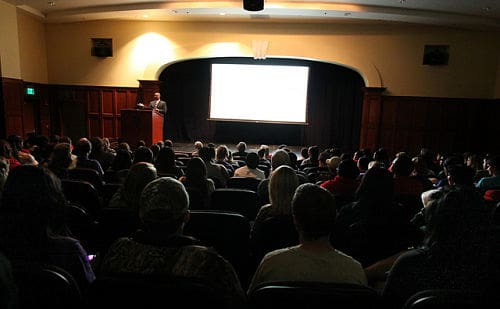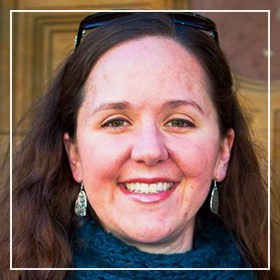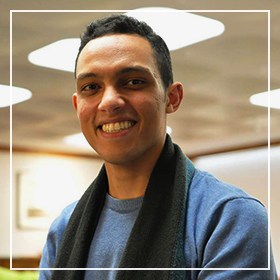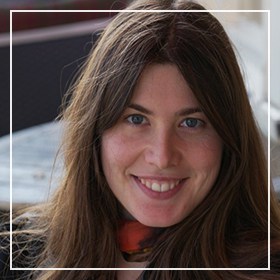Earlier this year I attended a workshop on academic writing. The intent, so I thought, was to explore avenues in academic research to see how our writing could be employed outside of academia. But the theme of the workshop started to shift half way through the presentations when audience members voiced their concerns with academic working conditions.
Senior and junior academics alike took hold of their tiny soap boxes and stepped forward with their large list of concerns, leaving me at a loss for words.
Shortly thereafter I found myself at the beginning of the job search. Having finished my doctorate in 2016 I had decided to take some time out to focus on preliminary fieldwork and tutor on the side. It was only when I started to apply for academic job postings that I came across colleagues with concerns regarding short term contracts and rather poor paying conditions. When the Guardian published reports in 2016 on the ‘Sports direct’ model used for lecturers, and the increase of casual contracts, I wanted to see how these current issues affected Early Career Researchers (ECRs).
In June of this year I hosted a podcast called ‘Coffee & Cocktails’. The intent was to replace soap boxes for drinks and allow academics to gather to discuss their concerns and interests in academia in a relaxed studio environment.
Rather than use the podcast as a tool to berate higher education, my objective was to provide solutions to problems faced in academia.
Below is a summary of the round table discussion in episode one called ‘ECRs and the job market’. I thank the guest-speakers, Dr Venetia Congdon (VC), Dr Timothy Thurston (TT) and Dr Chihab El Khachab (CEK) for their invaluable insight and thoughtful perspectives.

Ann: What are your concerns regarding job security, precarious contracts, and unpaid work in academia?
TT: Academic work might be considered a ‘vocational’ profession. Prestige is often offered in place of fair compensation for work. From precarious contracts and contingent labour to various forms of unpaid work, this logic seems to pervade contemporary academic life. This would be fine if the academic’s sole obligation was teaching or administrative tasks. But academics also conduct research to further human knowledge.
Insecurity, precariousness, and unpaid work inhibit the development of a productive research program.
This can be difficult when moving between multiple institutions, cities, and sometimes even countries. In the United States, adjunct faculty work for low pay without benefits and research allowances. Once on the adjunct track (positions overwhelmingly filled by women and persons of colour), it can be extremely difficult to get permanent positions. Is academia creating an academic underclass? How complicit are we all in this process?
VC: My main concern with academia is job security. Most academic posts are designed to last one to three years (occasionally four), be they grants, lecturing positions or project team researchers. Afterwards, there is simply no guarantee that one will be able to find a paying position once these contracts end, especially in the current climate of research funding uncertainty. For this reason, many ECRs are forced to move into other professions to make ends meet, and prevent a gap on their CV. Yet working in the private sector is sometimes looked upon negatively by professionals in academic institutions.
Having unpaid work or affiliation, on the other hand, is seen in a much better light.
I believe there needs to be a greater acceptance that some ECRs are going to take time out of academia, and they should not be at a disadvantage if they want to return.
CEK: Unpaid teaching preparation is an important issue, but it is swept under the rug because there is this idea that academic work ought to be a vocation where ‘one cannot count the hours’. However, these hours are very real and taxing when it comes to preparing a lecture, a seminar, or a class discussion, and we are seldom compensated beyond contact hours with students. This is an appalling compensation model: it is like paying a football player by the minute that s/he spends on the pitch or paying an actor by the minute that s/he spends on screen. Teaching is undercompensated in research-oriented institutions and the amount of work it requires is underestimated, and this certainly does not help in an environment where young scholars are increasingly pressured to publish under precarious teaching contracts.
A: Beyond publishing, what skills do you think are necessary to break through into the twenty-first century academy and how can you be strategic in building these skills?
TT: Simply put, most of us will not end up working at a top ten institution where we will be evaluated solely on our publications. In light of this, we have to ask: what are the skills of the twenty-first century academic?
From what I can gather, twitter, blogging, and the ability to use a variety of digital tools in teaching, research, and engaging the broader public are skill sets which are growing ever more important.
Some graduate programs are already changing their programs to reflect these skill sets with workshops about audio editing and social media, but I think ECRs can take greater ownership of this process. That being said there is an additional element at stake here: with so many voices competing for the spotlight, few people have time to evaluate the quality of their work. We live in an age where reputation carries more weight than character, therefore we must be our own publicists.

VC: There are several basic skills that are essential to being a successful ECR, however very few institutions ensure these are taught to its students. Below is a basic ‘toolbox for success’ that I think ECRs should develop:
Outreach – Tim has already talked about this, and I agree that the ability to promote research within and without the academy cannot be understated. Be savvy, and know how to present your work in jargon-free academic-speech (it is harder than it looks).
Grant and application writing – This skill is a fine art. It is a difficult one to master, as institutions rarely give feedback on unsuccessful applications, so ECRs should nail this early on. Share drafts with experienced academics to get their feedback.
Mentor – Find perhaps a former professor or supervisor who will act as an advisor and provide council. It is important to cultivate this kind of relationship during your studies. They may also be the one to provide you with references later on.
Networking – This is about building contacts, getting your name out and developing a reputation in your chosen field. Actively send emails to people you meet at events, or even individuals you have never met but share a research interest. Also keep an up-to-date online presence with your latest research.
CEK: The ability to attract funding is an underrated skill. This is not just about the ability to write a good proposal to get funds from private trusts or national funding bodies: it is a set of skills ranging from identifying and grouping potential funding sources, to creating a network of administrative and academic resources to secure and manage the funds, to generating fundable ideas on a regular basis. We all know a type of successful academic who combines all of these so-called ‘entrepreneurial’ qualities.
It has become an increasing burden on young scholars or even faculty members to set together the conditions of their own research, instead of relying on existing (and thinning) institutional resources.
Understanding how to gather resources to support one’s research seems to have become a valued skill on its own, and being strategic in building this skill will involve thinking outside the box of traditional grant applications.
A: The need to travel is essential nowadays for an academic career. What problems arise for those individuals who are unable to travel?
TT: Travel for conferences and for research can help you ‘build your brand’ within the small circle of your speciality and help you develop the skills and knowledge necessary to begin (and sustain) an active academic career. But doing so places tremendous burdens on contingent early career academics, many of whom do not receive departmental assistance for travel. The problem is exacerbated for academics with families and especially single parents. If you are unable to travel for conferences, research, or to take a position (short term or long-term), your options are severely limited.

VC: I agree with Tim that travelling for conferences and research is essential for networking, promulgating research, and presenting, and also finding publication opportunities (four conference papers of mine have lead to publications in edited volumes). However, the cost of travel to conferences can be prohibitively expensive for many ECRs, unless they can find funding from the conference organisers or an affiliated institution. Moreover, this kind of funding is normally only for presenters, not attendees. And now conferences often charge presenters for the privilege of presenting! All this disadvantages many ECRs as they simply cannot afford all these costs at an early stage in their career.
CEK: Since my undergraduate years, I have been through five universities in four different countries: Canada, France, the USA, and the UK. I feel like this experience has been enriching because I have encountered different academic cultures and expanded my academic network early on. However, without sufficient funds and support, I would never have had these kinds of experiences, which are increasingly valued by universities.
I have a feeling that those academics who cannot travel for extensive periods – because they lack funding, or they have a partner with a fixed job, or they have children – are punished by their immobility, not just because they compete with increasingly mobile scholars when mobility has become an intrinsic good, but also because immobility is sometimes conceived as an unwillingness to move, which is unfair to say the least.
A: How do you feel about the undervaluing of teaching when applying for job positions?
TT: I am not sure teaching is undervalued these days. In my field, China studies, most positions open to ECRs in the United States are at small Liberal Arts colleges. These positions have heavy teaching loads and (sometimes only slightly) lower expectations of research and publications. Additionally, almost every applicant now has to have a few peer-reviewed publications to their name before even applying. Teaching, then, helps a candidate stand out and provides proof that they can do the job for which they are being hired. My conversations with younger assistant professors at research universities bear this out. Many have suggested that teaching experience–either as a visiting assistant professor or on the tenure track at a smaller school–can make an enormous difference in your application. Supervisors further removed from the job market might disagree, but I think they overlook teaching at their own peril.

VC: I think little attention is paid to the difficulty of following a research project and doing full-time (or even part-time) teaching. In many job specs, the assumption is that these will take place at the same time, but I have still to meet an academic, at any stage in their career, who took on teaching responsibilities that did not infringe on their ability to research, write and publish their work. That said, one of my doctoral examiners remarked that having a teaching portfolio does no harm when applying for a research-focused role – though if you get the job, be wary of getting roped into doing extra teaching on the side!
CEK: There is a strange paradox in research-oriented institutions, whereby getting a lecturing position is conditional on the ability to teach students, yet teaching is so undervalued that being too invested in it might attract suspicions that one is not serious about their research. This paradox is curious because one’s teaching ability is at least informally rated by selection committees, but it is rather unclear how and according to what criteria it is being weighed. There are a range of means used to this end – checking what the candidate has taught before, asking him/her to give a lecture, asking to see syllabi or (in the USA) student evaluations – but these means do not amount to a coherent set of criteria, and the bottom line about ‘good’ teaching seems to be whether the committee members like your teaching or not.
If teaching is to be rightly valued, it would be helpful to make implicit criteria about teaching explicit, and to give additional weight to teaching skills in lecturing jobs.
Featured photo by Jeanne Menjoulet (flickr, CC BY 2.0)








